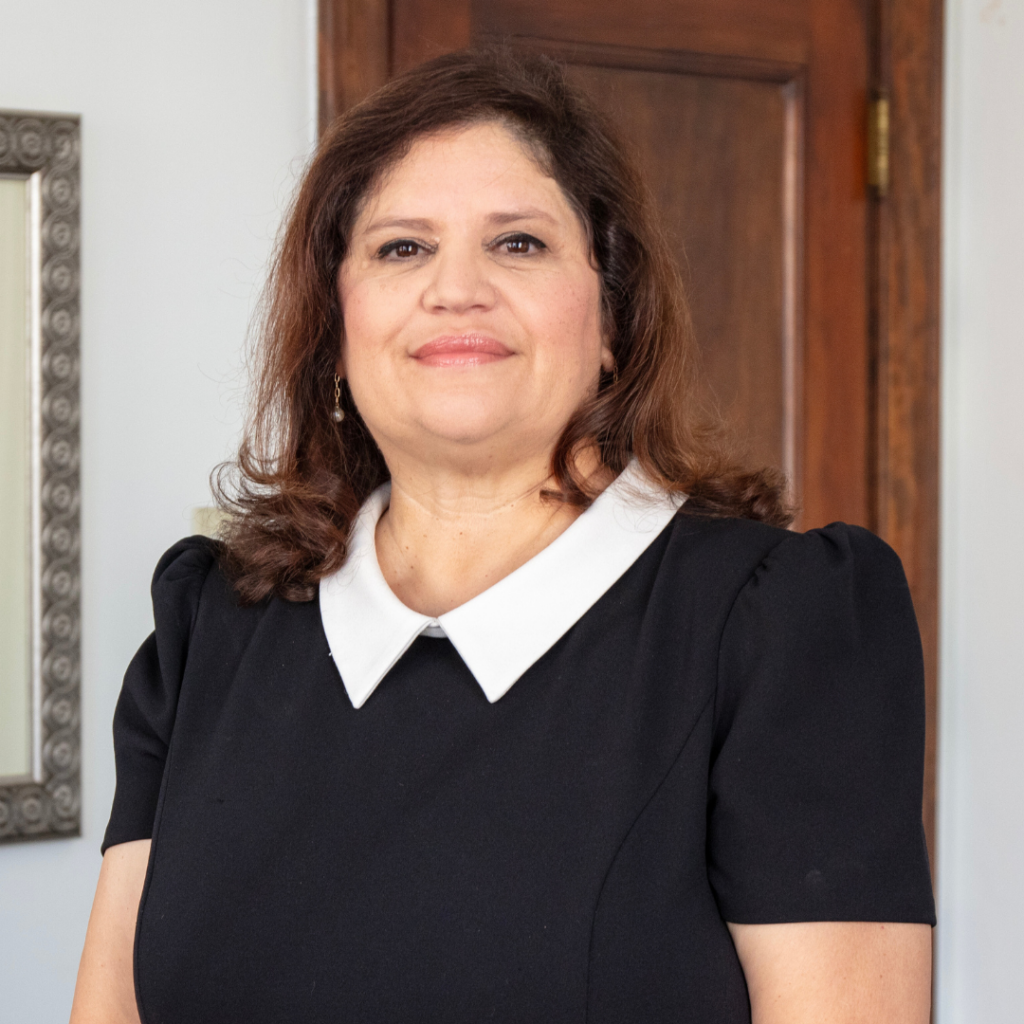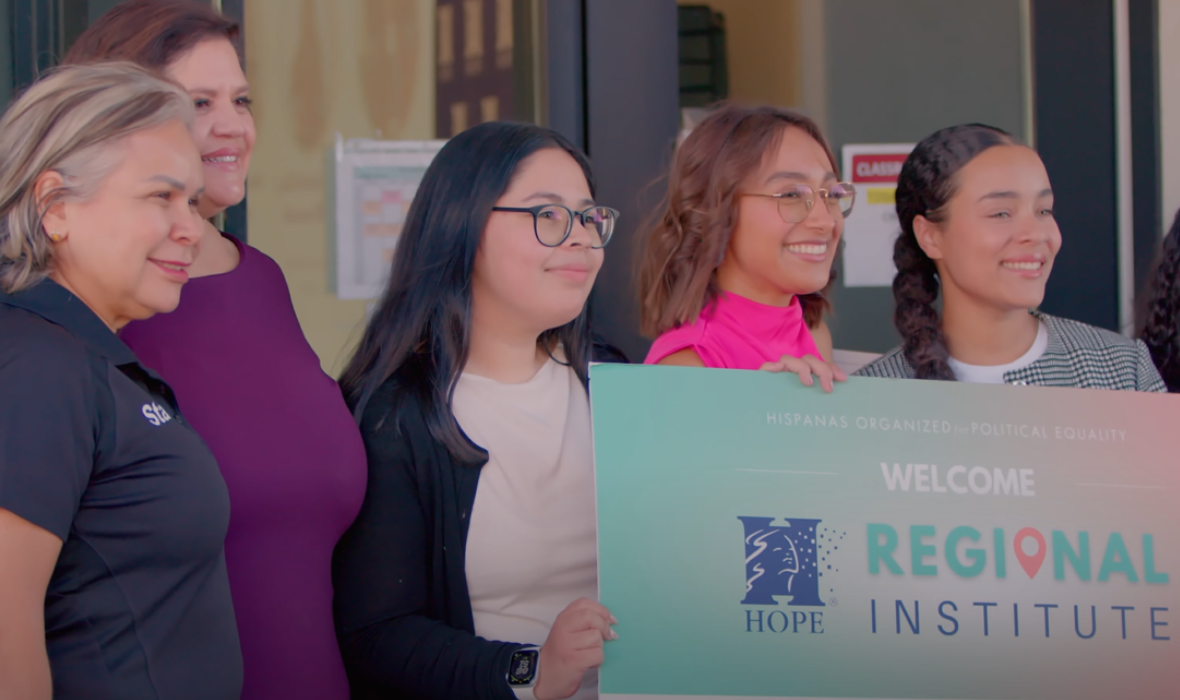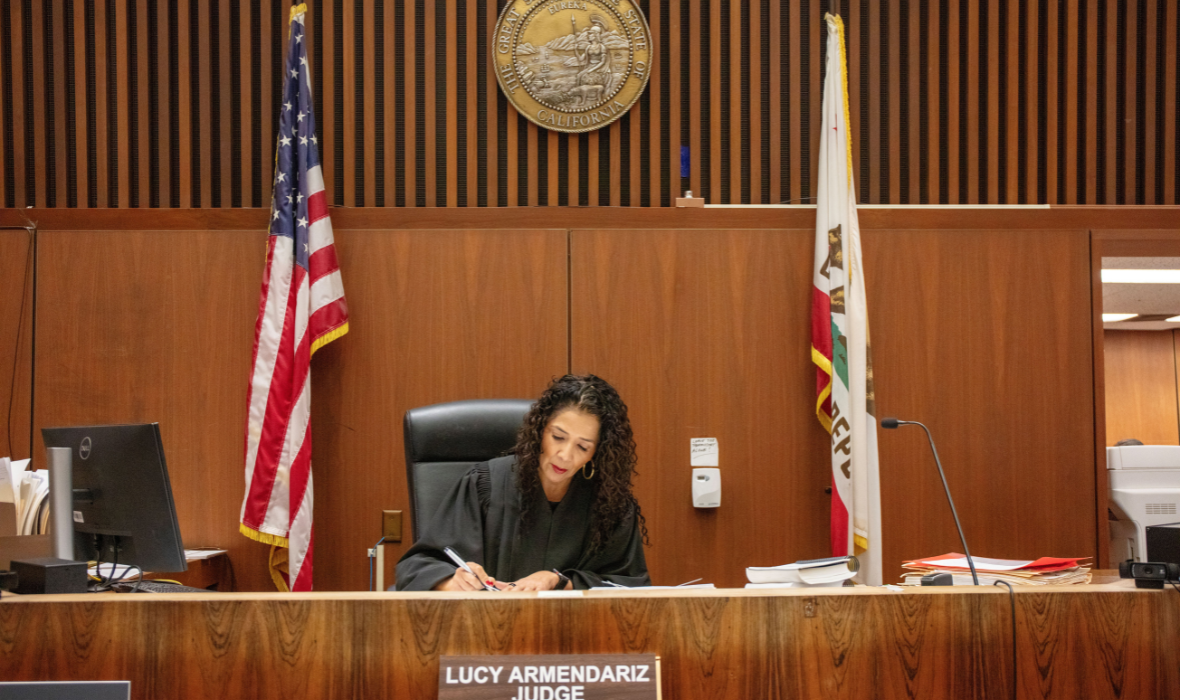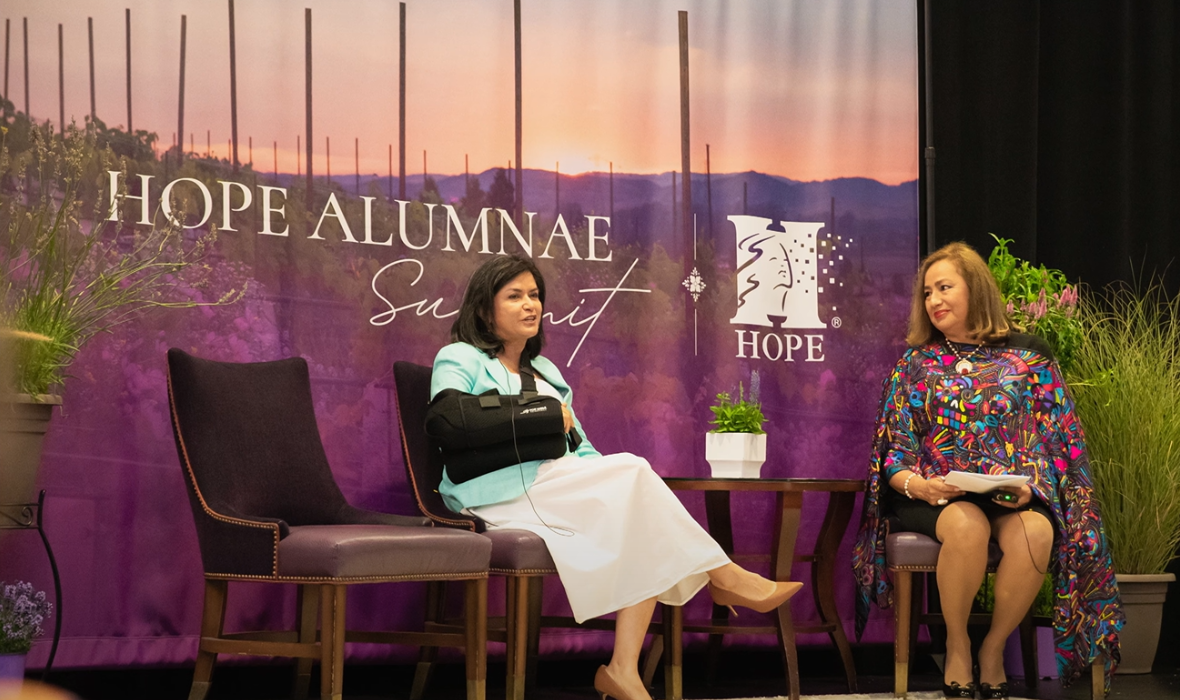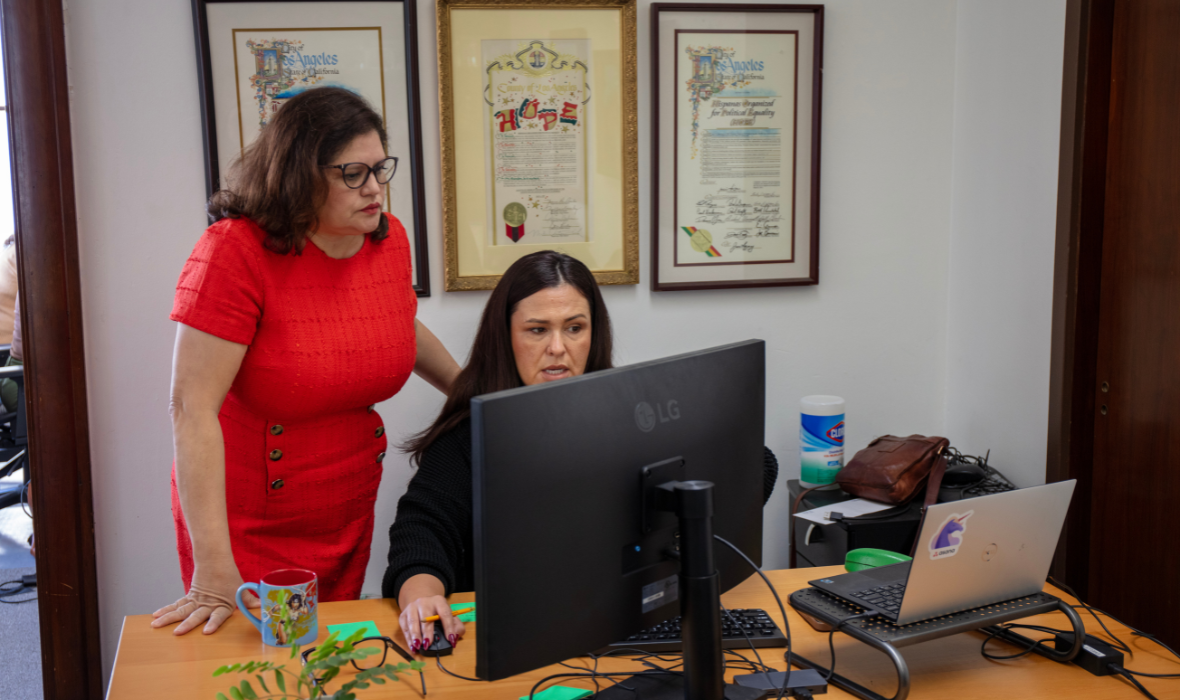Advancing democracy and strengthening communities through Latina civic leadership
Overview
As a child, Helen Iris Torres painfully observed the discrimination her immigrant mother faced trying to fit into their community. She began her career determined to create a world where her mother would be accepted. Torres found seeds of the world she hoped to create in Hispanas Organized for Political Equality (HOPE), an organization that prepares and supports Latinas to be civic leaders, and advocates for policy changes that champion economic and political parity. Torres first joined the organization as a volunteer in 1997 and participated in the inaugural HOPE Leadership Institute cohort in 1999. After assuming the role of Executive Director in 2000, Torres grew HOPE into a fully staffed training, research, and advocacy organization that builds Latina community power. She describes her role as “matchmaker” and “talent scout,” cataloging the strengths and dreams of each participant so she can confidently recommend them for appropriate appointments. Under Torres’ leadership, HOPE has established a network of notable alumni leaders, with 61% serving on boards or commissions and 16% holding or running for elected office.
“Our vision is to ensure Latinas confidently claim their place at every leadership table, leading transformative change with purpose, strength, and impact.”
Primary Regions Served
Challenge
- In 2022, Latinas comprised 20% of the California’s population and 40% of all women. Latinas are capable leaders with under-tapped potential to provide leadership in the state but are historically underrepresented in leadership.[1]
- The wage gap for Latinas is larger in California than any other state in the nation, with Latinas making just 39.5 cents for every dollar earned by white, non-Hispanic men.[2] If trends since 2002 continue, it will take nearly 200 years for Latinas to reach pay equity with white men.[3]
- Advocacy to improve the quality of life for Latino families require political and organizing power, which is hindered by disproportionate underrepresentation of Latinos in civic leadership and low philanthropic investment targeting Latinos—just 1% of all foundation dollars.[4]
Innovation
- HOPE prepares Latinas to be civic leaders and advocates by immersing them in the impact of policy on their lives, data to support advocacy, and how policy decisions are made. Participants are focused on local, state, or federal issues, young or more advanced in age, and from every one of California’s regions.
- HOPE’s signature and highly selective training program, the HOPE Leadership Institute (HLI), is specifically designed for professional Latinas in California and trains regionally diverse cohorts of 20-45 Californians each year through seminars, experiential learning, and capstone projects.
- The HOPE Youth Leadership Program (HYLP) helps high school-age Latinas prepare for college, gain financial literacy skills, civic leadership skills, and build social capital alongside peers and advisors. Torres concentrates on the “forgotten middle,” supporting youth who often lack access to resources through other programs.
- Torres built research into HOPE’s model, generating data about the lives of California Latinas in partnership with academic institutions, producing reports on issues like economic status and leadership styles to inform advocacy efforts, and strengthening the case for Latina leadership in policymaking.
Impact
- Since its founding in Los Angeles in 1989, HOPE has trained over 60,000 Latinas through various programs, including 800 women statewide who have completed the HLI, and another 1,000 who have participated in its youth and college leadership programs.
- A 2022 survey of HOPE alumni found that 97% report increased political skills and capacity to network with other Latinas, while 86% credit HOPE with higher self-confidence and 70% report stronger public speaking skills. [5]
- Among HLI participants: 61% serve on a board or commission, 41% serve in executive level roles, 16% hold or are running for elected office, and another 35% are considering it. Likely in part due to HOPE’s programming and advocacy for its trainees, many more Latinas are now holding public office.
Opportunity
- Torres is continuing to build a pipeline of Latinas prepared for public service by maintaining HOPE’s established programs and engaging alumni to serve as mentors and “bring along the next leader.”
- In 2024, HOPE launched regional leadership institutes in Los Angeles and San Diego to prepare Latinas for service on school boards, city councils, and other local bodies. Torres is expanding the model to other parts of the state and expects the institutes will eventually train 300-400 Latinas each year.
- Torres also plans to expand the organization’s binational program, recruiting women throughout the United States and Mexico to prepare a network of Latinas to address issues that span the Western Hemisphere.
The written profile and video reflect the work of the leader(s) the year they received a Leadership Award. Please contact the leader(s) for current information.
